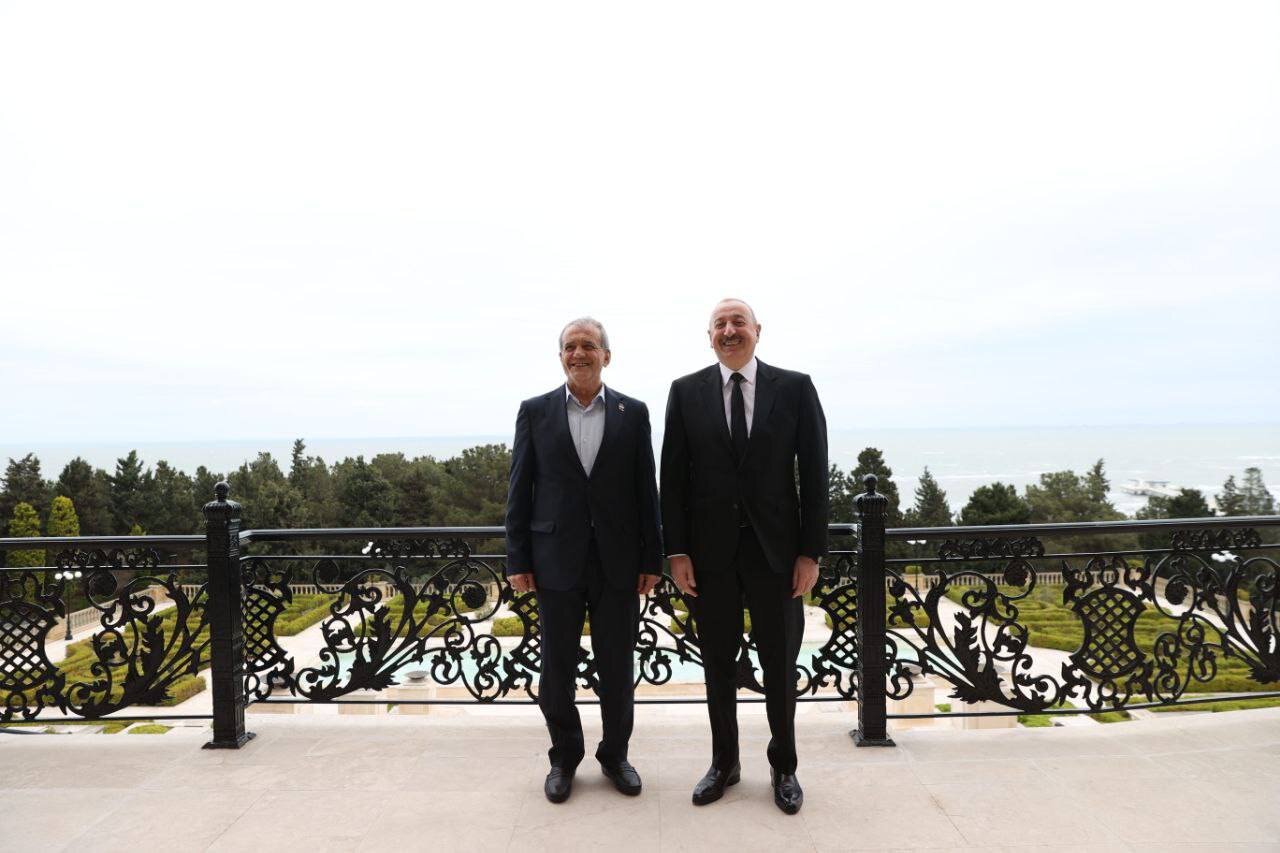Diplomatic dawn in the Caucasus: How Iran-Azerbaijan unity exposes Israel’s fraying playbook

TEHRAN – When Iranian President Masoud Pezeshkian landed in Baku on Monday, his visit did more than yield seven signed cooperation agreements—it exposed the cracks in a decades-old foreign strategy to Balkanize the Caucasus.
As the two nations deepen their strategic ties, the Israeli regime’s palpable unease—exemplified by Prime Minister Netanyahu’s hastily announced follow-up visit to Azerbaijan—lays bare a truth often obscured by geopolitical posturing: the stronger Iran and Azerbaijan grow as partners, the weaker external efforts to pit them against one another become. This is not merely diplomacy—it is a reckoning.
Israel’s pan-Turkist gambit unravels
For years, Tel Aviv positioned Azerbaijan as a linchpin in its campaign to “contain” Iran, leveraging arms sales (providing over 60% of Baku’s defense imports since the 1990s) and intelligence-sharing facilities near Iran’s borders.
Central to this strategy was amplifying Pan-Turkist narratives—an ideology promoting unity among Turkic-speaking nations—to drive a wedge between Baku and Tehran.
As Pezeshkian noted during his visit, however, such efforts ignore an immutable reality: Iran and Azerbaijan are “bound by brotherhood, friendship, and familial ties,” with shared Shia traditions and Persianate cultural legacies stretching back centuries.
The 2020 Nagorno-Karabakh conflict revealed the limits of this divide-and-rule approach. While Azerbaijan celebrated its military successes with Turkey and Israel’s alleged backing, the subsequent regional instability underscored the risks of overreliance on external actors.
Iran, by contrast, positioned itself as a pragmatic mediator, advocating for lasting peace—a stance that resonated in Baku as reconstruction challenges mounted.
Brenda Shaffer and the industry of division
Israeli scholar Brenda Shaffer epitomizes the intellectual arm of this foreign interference. Her work, notably the 2002 book Borders and Brethren, has long been weaponized to frame Azerbaijani identity in opposition to Iran, downplaying centuries of coexistence.
By making absurd allegations such as “cultural genocide” against Azerbaijanis in Iran—a claim refuted by millions of Iranian Azerbaijanis—Shaffer’s rhetoric served as a pretext for sanctions campaigns and separatist provocations.
Moreover, Shaffer and those who share her views fail to recognize that Iranian identity, rooted in one of the world’s oldest civilizations, transcends narrow ethnic and racial divisions. Imposing a European framework to interpret Iran not only misrepresents its rich cultural tapestry but also undermines any credible analysis of the nation’s multifaceted heritage.
Yet Pezeshkian’s visit dismantled these narratives. His meetings with President Ilham Aliyev emphasized cultural synergy.
From friction to pragmatism: Security beyond proxies
Skeptics often cite incidents like the 2023 incident in Azerbaijan’s embassy in Tehran as evidence of irreparable tensions. Yet both nations have deliberately sidestepped such flare-ups to prioritize shared interests.
Collaboration on border security, counterterrorism, and other issues reflects a pragmatic understanding: regional stability cannot be outsourced.
For Azerbaijan, this partnership reduces dependence on Turkish and Israeli security guarantees, bolstering its autonomy.
For Iran, it secures its northwestern flank while countering U.S.-led sanctions through increased trade.
Netanyahu’s anachronistic counterplay
Israel’s anxiety is palpable. Once able to position Azerbaijan as a “listening post” against Iran, Tel Aviv now watches as Baku negotiates directly with Tehran on everything from Caspian pollution to transit corridors.
The proposed Zangezur route—a transportation link connecting Azerbaijan to Turkey—was initially touted as a Pan-Turkic project, excluding Iran.
Now, Tehran’s involvement in talks underscores a stark shift: Azerbaijan no longer requires Israel as an intermediary.
Netanyahu’s announced rushed visit feels increasingly desperate.
Meanwhile, Iran’s focus on infrastructure, such as expanding the North-South Transport Corridor to connect the Caucasus to the Persian Gulf, threatens to marginalize Israel’s “periphery doctrine,” which relies on encircling Tehran with hostile neighbors.
Additionally, Pezeshkian’s consultations with the Leader of the Islamic Revolution, Ayatollah Seyyed Ali Khamenei, before the trip were no mere formality.
“We emphasized the necessity for deepening and strengthening the relations between the two countries,” the Iranian president said about his meeting with the leader before visiting Baku.
Israel’s scramble to reassert influence, exemplified by Netanyahu’s reactive diplomacy, underscores a fading era. The Caucasus no longer needs translators. In Baku and Tehran, the future is being written in a language of kinship that outsiders struggle to comprehend.
Leave a Comment